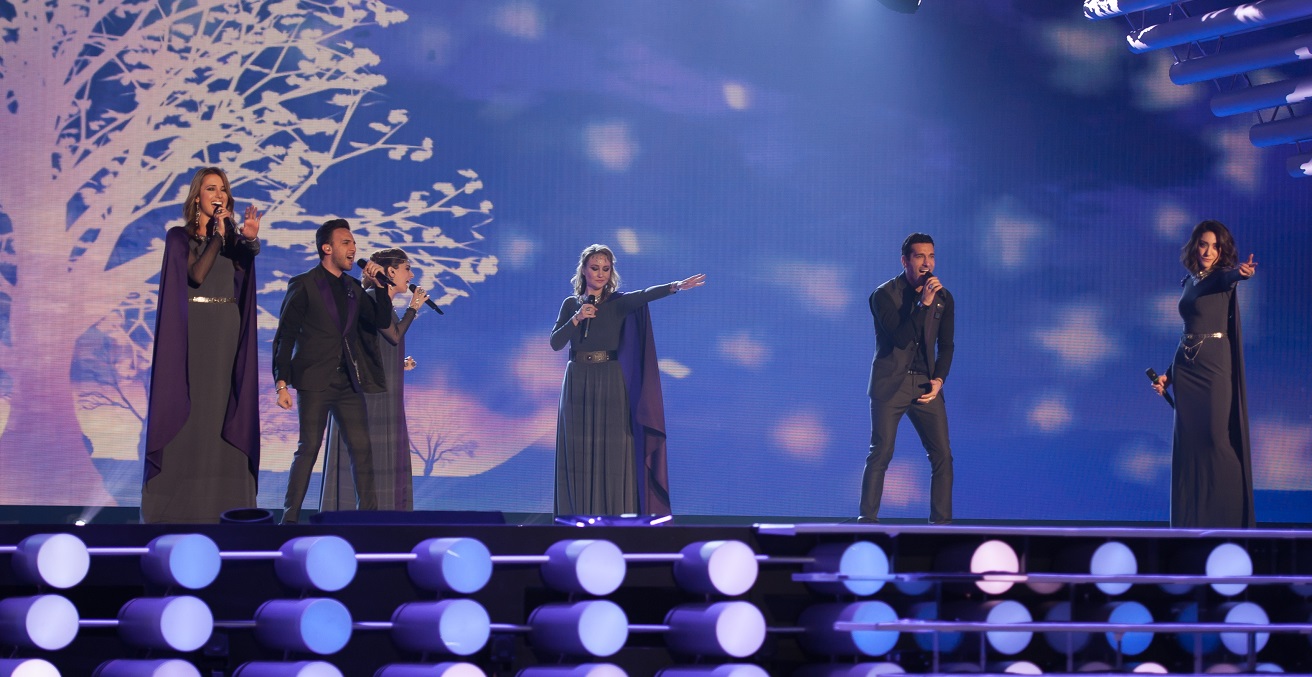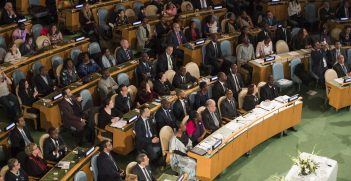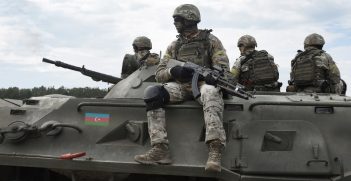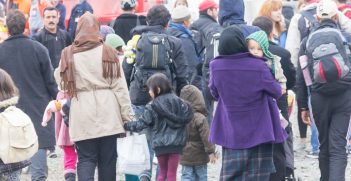Running Scared: Political Tensions Between Armenia and Azerbaijan in the Eurovision Song Contest

Like with any multinational event, politics is always affecting Eurovision. This can be seen in no better example than the interactions between Armenia and Azerbaijan in the contest.
When the Eurovision Song Contest was conceived in the 1950s, it was proposed as a means of uniting a war-torn continent through the power of song and entertainment. Politics was to be as far removed from the contest as possible. But would this notion be upheld? Almost seven decades down the line, this noble concept of peace first, politics last has been far from the case.
On the eastern fringe of Europe, the ex-Soviet nations of Armenia and Azerbaijan have only participated in the contest since the late 2000s. Both see Eurovision as one of the best opportunities to promote themselves in the international arena. They often send their biggest artists who sing songs written by well-established, chart-topping Swedish songwriters. The result has been placings that often belie their small populations: Azerbaijan won on only their fourth attempt in 2011, while Armenia came in fourth place in 2008 and 2014 – impressive considering the contest often has upwards of forty countries participating.
Politically, these two neighbouring countries have had a fraught relationship. This largely stems from the ongoing conflict over the Nagorno-Karabakh region. The area was delineated to belong to Azerbaijan during Soviet times, even though most of the population was ethnically Armenian. In 1988, Armenians in Nagorno-Karabakh demanded that the region be ceded from Soviet Azerbaijan to Soviet Armenia. This led to a war that ended with a ceasefire in 1994 and Armenia assuming control of parts of southwestern Azerbaijan. Since then, relations between the two countries have been uneasy.
On 27 September 2020, a new conflict broke out that ended with a ceasefire agreement signed on 9 November. Around 150 civilians and 5000 soldiers were killed, and more than 130,000 people were displaced. Armenia was forced to cede to Azerbaijan not just the parts of Nagorno-Karabakh Azerbaijani forces captured, but also seven additional territories surrounding the region. This led to waves of protests against Armenian Prime Minister Nikol Pashinyan throughout his own country. In contrast, there was mass celebration across Azerbaijan, with the end of the war and signing of the peace deal viewed as a great victory.
Considering this political unrest, Armenian public television broadcaster AMPTV withdrew from the 2021 edition of Eurovision on 7 March. According to the broadcaster, “Recent events, lack of time and other objective circumstances are incompatible with proper representation of Armenia in [Eurovision].” This is not the first time though that the political hostilities between Armenia and Azerbaijan have affected their Eurovision participation.
In 2009, one year after Azerbaijan’s debut in the contest, the first incidents of Armenian-Azerbaijani tensions in Eurovision occurred. In the first semi-final of the contest, the postcard introducing the Armenian entry featured the We Are Our Mountains monument, which is in Stepanakert, the capital city of Nagorno-Karabakh. Azerbaijan protested that the statue being shown was an Azerbaijani landmark, and the art piece was edited out of the postcard for the grand final broadcast. In response, during the presentation of Armenia’s votes in the Eurovision final, the monument was displayed on the back of the Armenian spokesperson’s clipboard and was also illuminated prominently behind her on a video screen.
Controversy continued that year when it was reported that the Azerbaijani Eurovision broadcaster, Ictimai Television (ITV), had attempted to censor performances of the Armenian entry – in flagrant abuse of Eurovision rules. ITV denied these allegations. However, it was later revealed that all 43 Azerbaijanis who had voted for Armenia in Eurovision 2009 were summoned to Azerbaijan’s Ministry of National Security where they were interrogated and accused of being “unpatriotic” and a “potential security threat.” An investigation by the European Broadcasting Union (EBU), the organisation that runs Eurovision, saw the Azerbaijani delegation fined €2700. The EBU also changed its rules so that participating broadcasters were liable for disclosing information which could be used to identify voters.
Three years later, in 2012, Azerbaijan was due to host Eurovision after the duo of Ell & Nikki won the contest for the nation the previous year with the song “Running Scared.” Armenia was due to participate in what would have arguably been the most triumphant case of international diplomacy in Eurovision history. However, in February 2012, Armenia claimed that one of its soldiers was killed by Azerbaijani forces. Later that same month, Azerbaijani President Ilham Aliyev posted a statement on his website that “[Azerbaijan’s] main enemies are the Armenians.” As a result, 22 Armenian musicians – a group that included three former Eurovision contestants – signed a petition demanding that Armenia boycott the contest in Azerbaijan. They stated, “We refuse to appear in a country that is well-known for the … massacres of Armenians, in a country where anti-Armenian sentiments have been elevated to the level of state policy.” Armenia ultimately withdrew from the contest, an act that was described by the EBU as “a disappointment.” Even ITV General Director Ismayil Omarov expressed regret about the Armenian withdrawal as he believed the nation’s participation could have been a “joint peace message to the world.” Armenia returned to the contest the following year.
In 2015, Armenia sent an entry to Eurovision initially titled “Don’t Deny,” which was performed by six singers of Armenian descent from five different continents and Armenia. Critics claimed the entry was a call for the recognition of the Armenian genocide that began a century earlier. They argued the song broke the sacred rule of Eurovision: entries not having political lyrics or connotations. They also noted a scene where the musical group is dressed in outfits from the First World War before disappearing. The Armenian delegation denied the song had any political themes. In contrast, Azerbaijan – a country which alongside its major ally Turkey denies the genocide– criticised the entry and said they would ensure that the contest would not be “sacrificed to the political ambitions of a country.” The Armenian delegation later announced the changing of the song title to “Face the Shadow” to dispel concerns and strengthen the themes of the song. Azerbaijan though continued to express concern about the nature of the entry.
The tense relationship between Armenia and Azerbaijan is also reflected in the Eurovision voting statistics. Azerbaijan has never given points to Armenia, even though it has now had seventeen opportunities to do so. In fact, every Azerbaijani Eurovision juror that has ever critiqued the competition has ranked the Armenian entry last. Similarly, Armenia’s jurors have ranked the Azerbaijani entry last 98 percent of the time, with Armenia last awarding points to Azerbaijan in 2009.
Eurovision has historically been portrayed as not just a singing competition, but also a celebration where countries with long histories of conflict can put aside their differences and join together through song and entertainment. In reality, while Eurovision mostly has fulfilled this objective, the ongoing tension between Azerbaijan and Armenia reveals there is still progress to be made. They may start by looking to cases where Eurovision has helped in the healing process in relations between two countries. One example is Germany and Israel. In the 1982 contest, the German entrant Nicole sung “Ein bisschen Freiden” or “A Little Peace” in English. Nicole would later describe the overwhelming emotion of the moment when “the German girl, with the song about peace, got twelve points (maximum points) from Israel … [considering] our history.” A similar gesture between Armenia and Azerbaijan, could also help temper misconceptions and improve political relations of the two nations.
Ultimately, even though Eurovision claims that it is not a political institution, some aspects of it are inherently political. If Armenia and Azerbaijan want to improve their political relationship, it might be worth trying it out in the “non-political” Eurovision arena.
Samuel Lee is studying International Relations and Arts, majoring in Contemporary European studies, at the Australian National University (ANU). He also co-hosts the show “It’s Eurovision” on ANU’s Woroni Radio. Samuel is interested in European and Central Asian affairs. He is currently an intern at the AIIA National Office.
This article is published under a Creative Commons License and may be republished with attribution.





